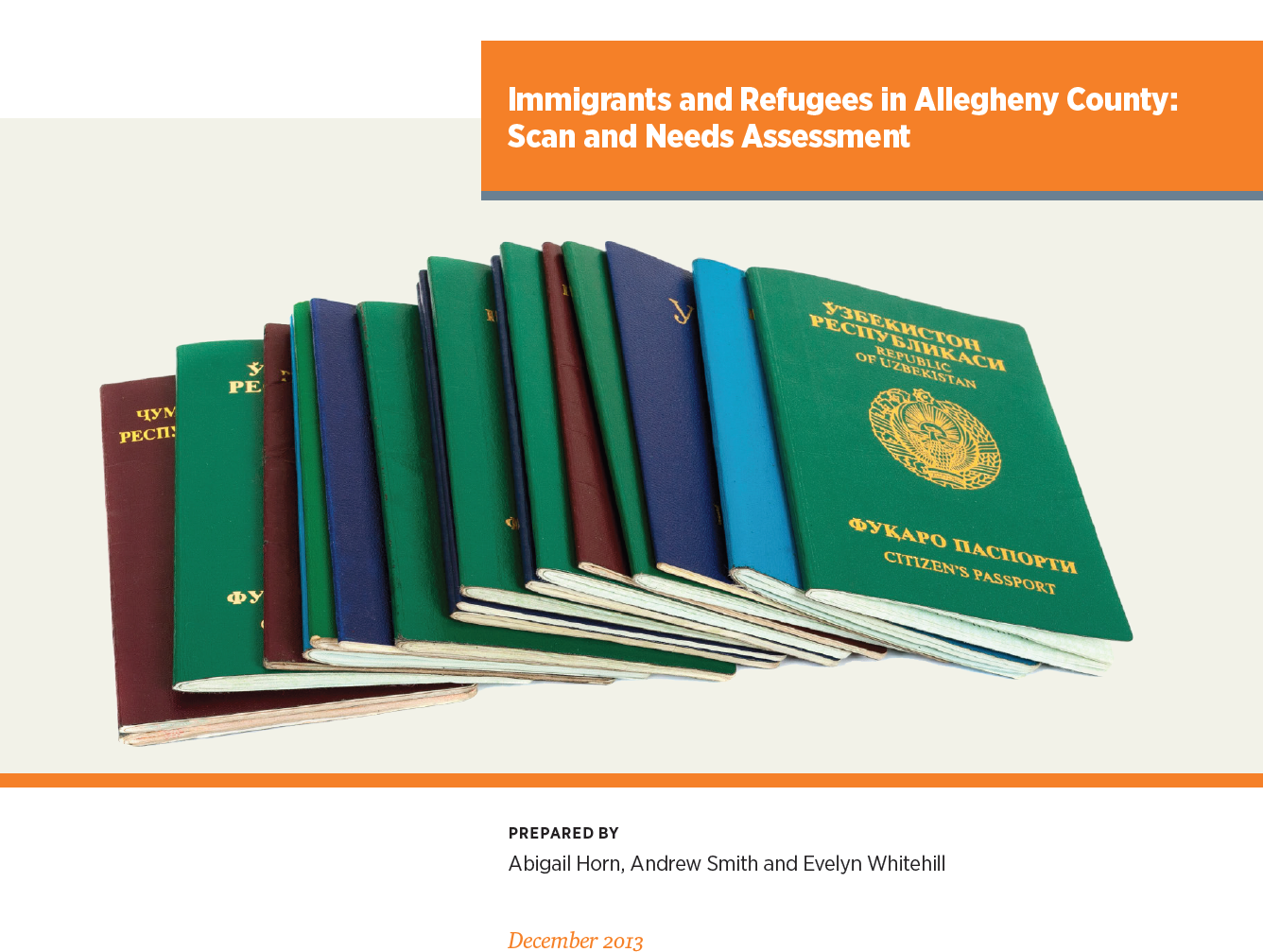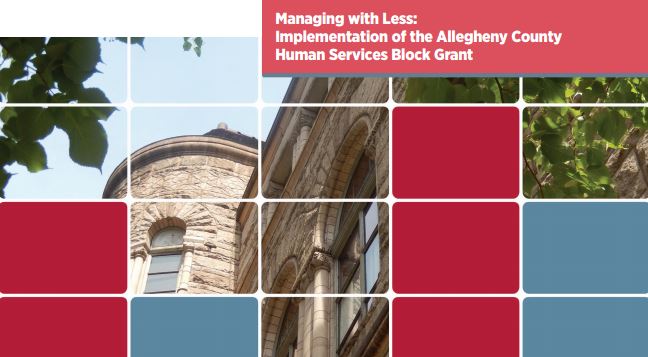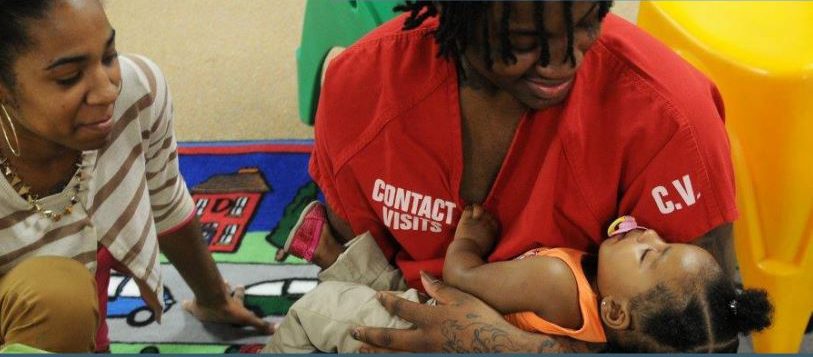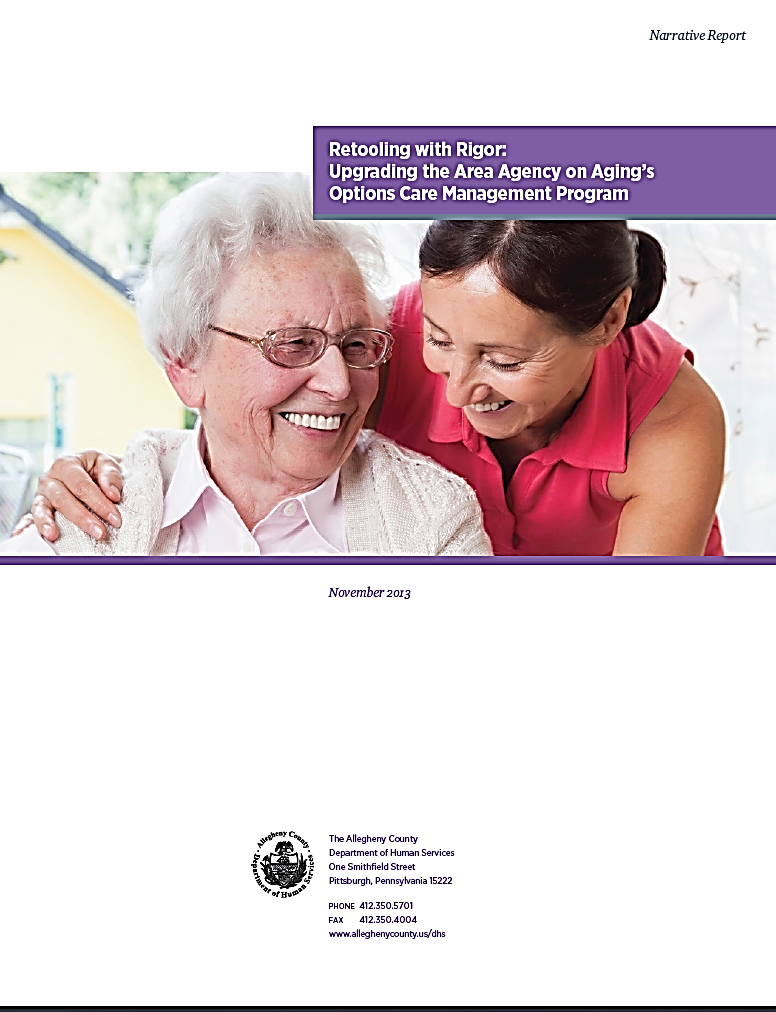This assessment provides information on local immigrant and refugee populations in order to identify current and emerging service needs, gaps and barriers. It includes a set of recommendations for improving their access to services.


This assessment provides information on local immigrant and refugee populations in order to identify current and emerging service needs, gaps and barriers. It includes a set of recommendations for improving their access to services.

Fiscal Year 2012/2013 saw the implementation of the Human Services Block Grant in Allegheny County, which combined a 10 percent decrease in funding from the Pennsylvania Department of Public Welfare (now the Pennsylvania Department of Human Services) with greater flexibility in how those funds could be spent. The local planning process included community involvement and an innovative Call for Concepts process.
Ensuring the safety of victims of domestic violence requires a change in the behavior of those who commit the crime (batterers). Unfortunately, existing batterer intervention programs are ineffective, at best, and not based upon empirical evidence. In partnership with the Allegheny County Court of Common Pleas, the Allegheny County Jail and the District Attorney’s office, DHS conducted a review of local programs and best practices, and identified criteria to improve program quality, consistency and fidelity. Based upon these criteria, an RFP was issued for implementation of batterer intervention programs in the community and the Allegheny County Jail. Implementation is currently underway.

This report and accompanying video describe the Allegheny County Jail’s Family Support Program, implemented in 2009 as a key strategy of the Allegheny County Jail Collaborative’s Reentry Program

In 2011, the Allegheny County Area Agency on Aging, part of the county’s Department of Human Services, embarked on an effort to improve the quality of its Options Care Management program. The Options Care Management program provides support to more than 5,000 non-Medicaid-eligible individuals, age 60 and older, so that they may continue living in their own homes.
This report, prepared one year after the transition to the new care management model, reflects on how the AAA staff succeeded in completing this ambitious undertaking and suggests lessons for others pursuing a similar transformation.

These narratives describe the experiences of individuals who participated in the Allegheny County Jail Reentry Program.
Stories of Transition – Part I
Stories of Transition – Part II
An analysis was conducted on fathers’ involvement in child welfare cases from 2010 through 2012. Biological fathers were identified in 81 percent of cases (as compared to 94 percent of mothers). The data provided in this brief address the factors that may influence this involvement; it also includes a discussion of practice measures being implemented to increase involvement by parents and, by extension, fathers.
Focus groups with youth and caregivers identified a number of concerns about the way in which psychotropic medications were prescribed to youth in a child welfare out-of-home placement. A quantitative analysis by Community Care Behavioral Health indicated that youth in child welfare placement and on medical assistance were about two and a half times more likely to be taking at least one psychotropic medication that their peers who were not in placement. Recommendations to address these issues are included in this report.
At the end of the 2011-2012 school year, about three percent of Pittsburgh Public School students were enrolled in a cyber charter school and less than one percent of Pittsburgh Public School students were being home-schooled. An analysis showed that these students had very little human service involvement, as described in this data brief.
United Way of Allegheny County
This report analyzes the numbers and needs of young adults with significant medical, intellectual, communication and/or behavioral challenges
In the third year of the agreement that allows the Pittsburgh Public Schools (PPS) and Department of Human Services (DHS) to integrate data, collaboration extended beyond DHS and local school districts, and community stakeholders became engaged in improving educational outcomes for children.
This publication details progress since the original Memorandum of Understanding between DHS and local school districts was signed.
Click here to read the report.
Click here to read Improving Educational and Well Being Outcomes: July 2012 Update.
The Brief Wraparound Residential model emphasizes working with youth on what they need to be successful following their stay in residential care; that is, at home, in school and in the community. It involves immediate engagement with the youth and family and is designed to support reunification and successful re-entry into the home and community. This report describes the model as well as lessons learned and challenges to full implementation.
In response to federal, state and local priorities, DHS implemented the Pennsylvania General and Special Education/Disability Accommodation Screen (Education Screen) in partnership with provider agencies and local school districts. The Education Screen was designed to increase collaborative efforts between DHS and school districts, with a focus on improved educational outcomes for students. Implementation included appointment of an Education Liaison, revisions to the child welfare records management application to allow for electronic completion of the Screen, and training and technical assistance. This report describes the implementation strategies utilized and lessons learned.
Allegheny County’s System of Care Initiative consisted of three federal grants designed to improve the functioning of system-involved children and youth with serious emotional disturbances, and their families. The three initiatives, which also sought to improve system integration and family empowerment, ran from 1998 through 2011. The evaluation described in this report looked at placement outcomes of children enrolled in one of the three programs as well as general outcomes and observations about the programs.